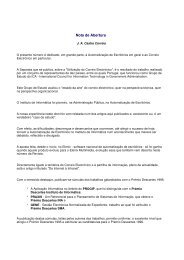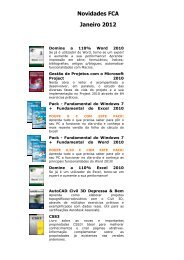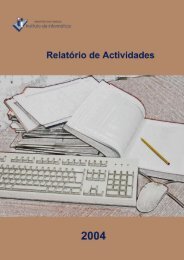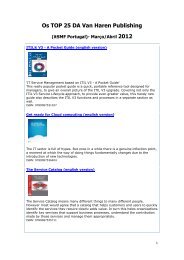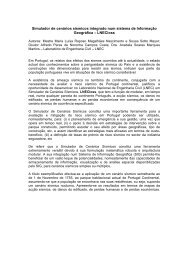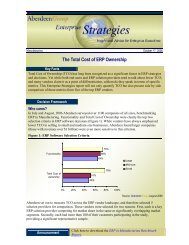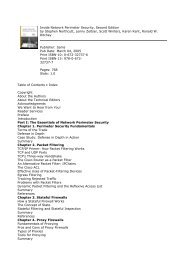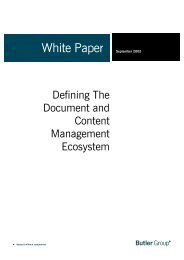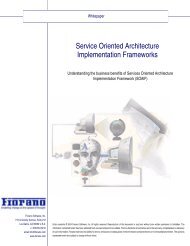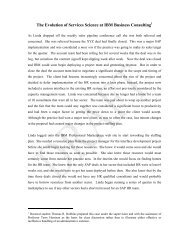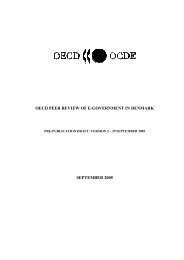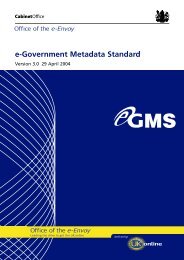Australian Government Information Interoperability Framework (pdf
Australian Government Information Interoperability Framework (pdf
Australian Government Information Interoperability Framework (pdf
Create successful ePaper yourself
Turn your PDF publications into a flip-book with our unique Google optimized e-Paper software.
<strong>Information</strong> management principles: the foundation for<strong>Information</strong> <strong>Interoperability</strong><strong>Information</strong> that is shared needs to be managed. The following informationmanagement principles provide the foundation for <strong>Information</strong> <strong>Interoperability</strong> and willserve to support a culture of reusing existing information within government.1. Manage information as an asset and a strategic resource.The importance of regarding information as an asset and a strategic resource shouldbe promoted. Expenditure on information management should be treated as aninvestment, not a liability. <strong>Information</strong> should be managed according to its value tothe government and its agencies, with a focus on high value information assets.2. Standardise information management practices.<strong>Information</strong> management practices should be standardised across governmentto share and improve processes for accessing information. <strong>Information</strong> should bemanaged according to lifecycle management protocols and be transferable acrossorganisations, subject to the requirements of privacy, confidentiality, intellectualproperty and associated security standards.3. Generate information to support decision making.Accurate, timely and relevant information should be available to share with otherswho have an appropriate business requirement. This principle is based on the needto continually work towards optimised agency and whole-of-government servicedelivery and organisational capability, supported by evidence-based decisions.4. Collect quality information.The collection of information should aim to be accurate, relevant, timely, reliable andcost-effective. The impost of information collection on the <strong>Australian</strong> public should beminimised as far as possible. Duplication and rework for staff should be minimised.5. Re-use information from single authoritative source.<strong>Information</strong> should be collected in a consistent manner and represent a singleauthoritative government perspective. The principle of re-use, where information iscreated once and is available to be used for different purposes with confidence, isfundamental.6. Promote trust and confidence, rights and responsibilities.The ethical use of information is paramount. <strong>Information</strong> management practicesshould be transparent, respect rights and enforce responsibilities. Access to and useof information should promote trust and confidence through adherence to privacy,confidentiality, and intellectual property and security requirements.7. Achieve a net social benefit.A net social benefit should be derived from whole-of-government and agency-specificinformation holdings. This should reflect a balance between compliance and servicedelivery and satisfy the important goals of service improvement and value creation.T H R E E W H A T I S I N F O R M A T I O N ?<strong>Information</strong> <strong>Interoperability</strong> <strong>Framework</strong> Sharing information across boundaries17



